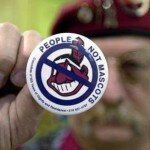Is racial sensitivity a learned behavior?
By Barbara Ciara, Columnist for the Daily News
I remember the first time I heard the N-word. Even though I didn’t know what it meant or why the person said it, I just knew it was a bad thing, because of how it made me feel.
 I was 6 years old and the lesson I learned that day is that words can be used as weapons. In an attempt to toughen me from the verbal assaults of childhood, I was taught to say the words, “sticks and stones may break my bones but words will never hurt me.”
I was 6 years old and the lesson I learned that day is that words can be used as weapons. In an attempt to toughen me from the verbal assaults of childhood, I was taught to say the words, “sticks and stones may break my bones but words will never hurt me.”
Do you recall that lesson? How is that working for you?
About 11 years ago I produced a series of reports on the N-word that many people thought was illuminating. We traced the word from its origin to its use as both a racial slur and a term of endearment among some groups of African-Americans. We also shined a light on how the N-word was liberally associated with some songs in the gangster rap genre.
The series produced a strong response pro and con. Some e-mailers and callers thought it was another example of political correctness gone wild. Some comedians raised the issue of their First Amendment right to free speech, and some viewers who identified themselves as well-meaning white folks asked the question, “Is it really a bad word if African-Americans say it to each other?” Duh! Can you imagine looking into the faces of Native Americans and saying Redskins?
I had a rather enlightening conversation with a friend who is on the board of UNITY, the organization of journalists of color. We spoke of our childhoods and I mentioned that while I was growing up I noticed that youngsters who watched John Wayne movies innocently played the game of cowboys and Indians. He is Native American, and his response was simply “Now they should know better.”
An editorial in the Los Angeles Times chastised NFL owner Daniel Snyder for ignoring the pleas of Native Americans to drop the team name Washington Redskins. The commentary made this point: “A football team called the Crackers or the Darkies probably wouldn’t be tolerated for long, yet the Washington Redskins have been using their offensive moniker since moving from Boston in 1937.”
What do you expect from a franchise that was the last in the league to integrate, and whose fight song used to end with “fight for ol’ Dixie”? It took years for the song’s ending to be changed to “fight for ol’ D.C.”
Author: News Wire (24 Articles)


COMMENTS